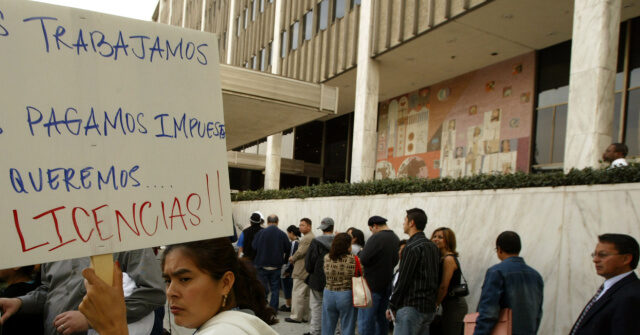The Importance of Immigrants in America
America’s history is deeply rooted in immigration, and Connecticut Attorney General William Tong emphasized this during a recent speech at the Immigration Community Meeting in Norwich. Held at Castle Church and organized by Latinos for Educational Advocacy and Diversity, Tong reiterated the commitment of Governor Ned Lamont’s administration to protect and respect immigrants and their families. He acknowledged the contributions of migrants to the country’s foundation and growth, highlighting their vital role in shaping American society. Tong’s remarks underscored the importance of inclusivity and the need to create an environment where immigrants feel valued and supported.
The Debate Over Birthright Citizenship
During his address, Tong also touched on the contentious issue of birthright citizenship, which grants automatic citizenship to anyone born on U.S. soil, including children of undocumented immigrants. This policy has faced increasing scrutiny, particularly from critics who argue that it is exploited by “birth tourists” who come to the U.S. solely to give birth and secure citizenship for their children. Tong, however, defended the principle, aligning with the broader Democratic stance on immigration. His office was among those that opposed former President Donald Trump’s attempts to end birthright citizenship, reflecting the ongoing tension between federal and state-level immigration policies.
The Vulnerability of Undocumented Immigrants
Tong also acknowledged the challenges faced by undocumented immigrants, who often live in fear of deportation and lack legal recourse due to the broad authority of the federal government over immigration matters. While state governments like Connecticut can offer some protections, the reality is that undocumented individuals remain vulnerable. Tong’s comments highlight the complexities of immigration law and the limitations of state-level efforts to counter federal policies. His words resonate with the broader Democratic narrative that seeks to humanize undocumented immigrants and treat them with dignity, despite their legal status.
The Broader Democratic Narrative on Immigration
Tong is not alone in his advocacy for undocumented immigrants. Other Democratic officials, such as New York Representative Adriano Espaillat, have also pushed for their rights. During a rebuttal to President Trump’s March 4 address to Congress, Espaillat referred to migrants as “my people” and criticized Trump’s deportation policies. This rhetoric reflects a growing trend within the Democratic Party to equate the rights of undocumented immigrants with those of U.S. citizens, a stance that has sparked intense debate nationwide.
The Economic and Social Implications of Immigration
While Democrats emphasize the human side of immigration, critics point to the economic and social challenges posed by undocumented immigrants. Studies suggest that a significant portion of undocumented migrants have low educational attainment, with nearly 50% not having graduated high school and 30% having less than a 9th-grade education. These statistics raise concerns about the strain on public resources, as nearly 60% of households headed by undocumented immigrants rely on welfare or government assistance. These figures have led some to question the sustainability of current immigration policies and the impact on American taxpayers.
The Role of Advocacy in Shaping Immigration Policies
The debate over immigration is further fueled by high-profile advocates like filmmaker Michael Moore, who has argued that deporting undocumented immigrants could deprive the U.S. of potential contributions to society. Moore’s hyperbolic claim that undocumented individuals might hold the key to curing cancer or saving the world from an asteroid underscores the emotional tone of the immigration debate. While such statements may oversimplify the issue, they highlight the passion and urgency with which advocates view the protection of undocumented immigrants. As the debate continues, the interplay between state-level initiatives, federal policies, and public opinion will remain central to shaping the future of immigration in America.
In conclusion, Attorney General William Tong’s speech and the broader Democratic stance on immigration reflect a deeply divisive issue that touches on questions of identity, economy, and justice. While advocates emphasize the humanity and contributions of undocumented immigrants, critics raise concerns about the practical implications of current policies. The debate is far from resolved, but one thing is clear: the conversation about immigration will remain a defining issue in American politics for years to come.


